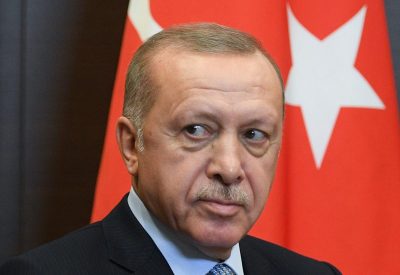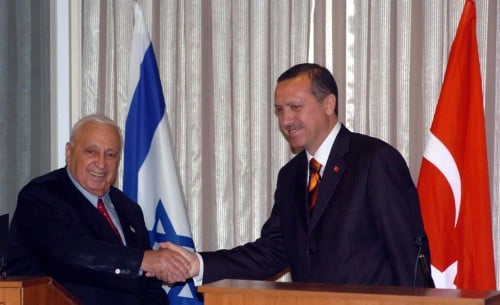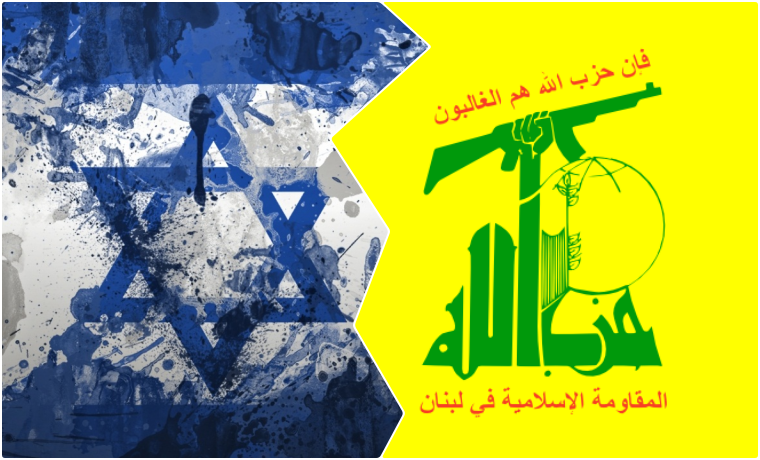Erdogan, Friend or Foe of Netanyahu? On Whose Side Is Turkey in Latest Israel-Gaza Escalation?

All Global Research articles can be read in 51 languages by activating the Translate Website button below the author’s name.
To receive Global Research’s Daily Newsletter (selected articles), click here.
Click the share button above to email/forward this article to your friends and colleagues. Follow us on Instagram and Twitter and subscribe to our Telegram Channel. Feel free to repost and share widely Global Research articles.
***
After the latest Israel-Gaza escalation, the world has effectively split into three groups. Apart from those that expressed open support for either side, the largest part of the globe has opted for neutrality.
Obviously, an immediate ceasefire would be the best solution, as thousands on both sides have already been killed, many of them women, children, the elderly, as well as hundreds of soldiers, the vast majority of whom are young people. Anyone sensible would want such tragedy to stop.
However, the interests of various powerful foreign entities are fueling and escalating the conflict. The involvement of regional powers is also of crucial importance and their relationship with both sides is dominated by complicated (geo)politics that transcend the question of religion and even the popular opinion of their respective electorates.
Turkey is a very good example of this. While the country is mostly Muslim, its political elites have always had the tendency to lean towards Israel, although they’d never admit it.
 Turkish President Recep Tayyip Erdogan is extremely prone to accept any ideological amalgam that furthers his Neo-Ottomanist ambitions. For instance, while he is officially an outspoken Islamist, he also pushes a very nationalistic agenda, such as the idea of pan-Turkism which isn’t always in line with Islamism and Neo-Ottomanism.
Turkish President Recep Tayyip Erdogan is extremely prone to accept any ideological amalgam that furthers his Neo-Ottomanist ambitions. For instance, while he is officially an outspoken Islamist, he also pushes a very nationalistic agenda, such as the idea of pan-Turkism which isn’t always in line with Islamism and Neo-Ottomanism.
Erdogan and Ariel Sharon Meeting in 2004
Erdogan and the Turkish elite on the whole have used this volatile ideological mix that overlaps in many ways (but can also be very contradictory) to expand Turkey’s zone of power and interests. As some other Turkic states also are coordinating their efforts with Ankara, a good example of this is the Azeri-Israeli partnership.
Their mutual enemy, Iran, is also a target of the Neo-Ottomanist/pan-Turkic ambitions of both Ankara and Baku.
And while Israeli-Iranian rivalry is religious and ideological, Azerbaijan’s beef with Tehran boils down to its nationalist idea of carving up northwestern Iran for itself, as the area is mainly populated by ethnic Azeris.
In fact, according to various estimates, there could be well over 20 million of them living in Iran, approximately three times as many as in Azerbaijan itself. Erdogan, although privately very supportive of the idea as it would significantly strengthen Turkey’s geopolitical standing (and further open the gates of Central Asia), avoids stating this publicly for the simple reason it would very likely jeopardize his strategic goal of becoming the absolute authority and “leader of political Islam”.
Ankara’s close ties with Israel are perhaps the key issue in this regard, as the latter’s conflict with much of the Arab world is effectively strengthening Turkey’s standing in the region.
This is best seen in Syria, where Turkish-Israeli coordination against President Bashar al-Assad has been a major obstacle for the final peace settlement.
In many ways, only Russia’s masterful usage of diplomacy and solid working relations with all of Syria’s neighbors are the reason why the troubles Damascus is going through aren’t far worse.
Still, while Syria is also a major target for Turkish expansionism, Ankara can’t exactly publicly reveal it’s coordinating this with Israel. This is partially why the Lebanon-based Hezbollah, one of Israel’s archenemies, has been so resolute in its support for Damascus and President Assad.
After the outbreak of direct hostilities in and around Gaza, Hezbollah was quick to activate its forces in the border area between Israel and Lebanon, obviously hoping to tie in as many IDF (Israeli Defense Forces) troops as possible and prevent their redeployment to southern Israel.
 It should be noted that Hezbollah is actually a much bigger threat to Israel than Hamas ever was, with much more capable and better equipped combat units that include some of the latest and most advanced infantry weapons.
It should be noted that Hezbollah is actually a much bigger threat to Israel than Hamas ever was, with much more capable and better equipped combat units that include some of the latest and most advanced infantry weapons.
In fact, Hezbollah even repelled a major IDF attack in 2006, which is perhaps the only known example of an Israeli military defeat to date. IDF’s officer corps, otherwise virtually unmatched in the region, takes Hezbollah’s capabilities extremely seriously, which is why most of Israel’s best troops are in the north.
Hezbollah also supports Hamas, but their relationship is not as simple as one would expect. Namely, until relatively recently, Hamas was allied to the Muslim Brotherhood, an extremist organization that Erdogan’s AKP is strongly associated with.
And while the group lost much of its influence, their old ties don’t break as easily. In addition, as previously mentioned, Erdogan himself needs to maintain a semblance of being the self-proclaimed “leader of political Islam”, meaning that he can’t publicly support Israel.
Thus, Hamas, which still has solid relations with Turkey, is also effectively allied with Hezbollah, an organization that Ankara has waged war with on and off since the 1980s. As we can see, “the enemy of my enemy…” could still be “my enemy”, since this logic doesn’t always apply in the Middle East, the world’s No. 1 geopolitical conundrum.
On the other hand, Turkish-Israeli cooperation isn’t only limited to the strategic arena, but it also extends to the tactical level. Namely, Israel has been instrumental in Ankara’s major military modernization programs, including the Turkish Army’s upgrade of old M60 “Patton” tanks with “Sabra” Mk II kits, as well as the Turkish Air Force’s Cold War-era F-4E “Phantom” fighter jets that were modernized to the “Terminator 2020” standard.
When combined with massive Israeli arms shipments to Azerbaijan, it’s naive (to say the least) to even think that Turkey would ever ditch Israel for Palestine.
Ankara will surely continue to provide humanitarian aid to Palestinians, as well as try to play the role of a supposed protector and mediator between the two warring sides, but nothing will change behind the scenes.
*
Note to readers: Please click the share button above. Follow us on Instagram and Twitter and subscribe to our Telegram Channel. Feel free to repost and share widely Global Research articles.
Drago Bosnic is an independent geopolitical and military analyst.
Featured image is from Ramil Sitdikov / Sputnik

